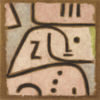How do you know what matters to you? Who you are?
What I find myself doing.
You react to the stimulation, pleasure or pain.
According to science, it’s memory, and as you go through your day and experience things, a structure shaped like a horse shoe around your spinal cord registers and routes every sensory stimuli you have. When you recall a memory, this process is reversed, but the registered signals also include other instances of the same kind of stimuli. This is why people tend to rather easily say things like pain is pain. You don’t have a thousand different kinds of pain, you just have pain. You don’t have to figure out what kind of pain it is, it hurts and you react to that and very likely without “thinking” about it. Each time you recall a memory, it also brings back any new associations you have with that memory. If you once were deeply gratified by something that gave you pain, like maybe you won a fist fight with someone, then your memories of pain are altered by that. They lose some of their aversiveness.
If you are subject to pain on an ongoing basis for prolonged periods of time, the idea of pain begins to lose its meaning, which also means respecting other peoples pain also loses meaning. This is the science. The automatic mechanism behind your person-hood. Your person-hood is an organic process like a vegetable growing.
This explains why some people are so unfeeling towards others. How they can become desensitized to the pain of others. They can’t help it, or can you? Can you help how you feel? What you remember? What you learned to do and how you learned to behave? Can you do this by just thinking it over?
But you can use your own pain to understand others pain.
It depends on how much free will you want to grant.
I think it is possible to alter some of this.
An epiphany helps.
It’s not enough to just think about it, you need to change your state of being.
We tell stories or are told stories. Mostly these days we are told stories, but the hippocampus is just an organ like the echo chamber in a guitar. It doesn’t by itself make decisions. It just makes sure the sound of your experience is loud and clear.
It’s a big hard drive? It is indeed, and it doesn’t decide what story you tell, you do. It doesn’t matter that you are watching. Keeping an eye out over your shoulder will just make a long and boring story about keeping an eye out for enemies. A pretty passive character who is always running away.
This is why it’s crucial what stories children are exposed to. We don’t need to censor the stories our children encounter so much as we teach them to tell stories.
Your thoughts are welcome. Be well friends.
Travis Saunders
Dragon Intuitive
~science,mysticism,spirituality~



Leave a Reply